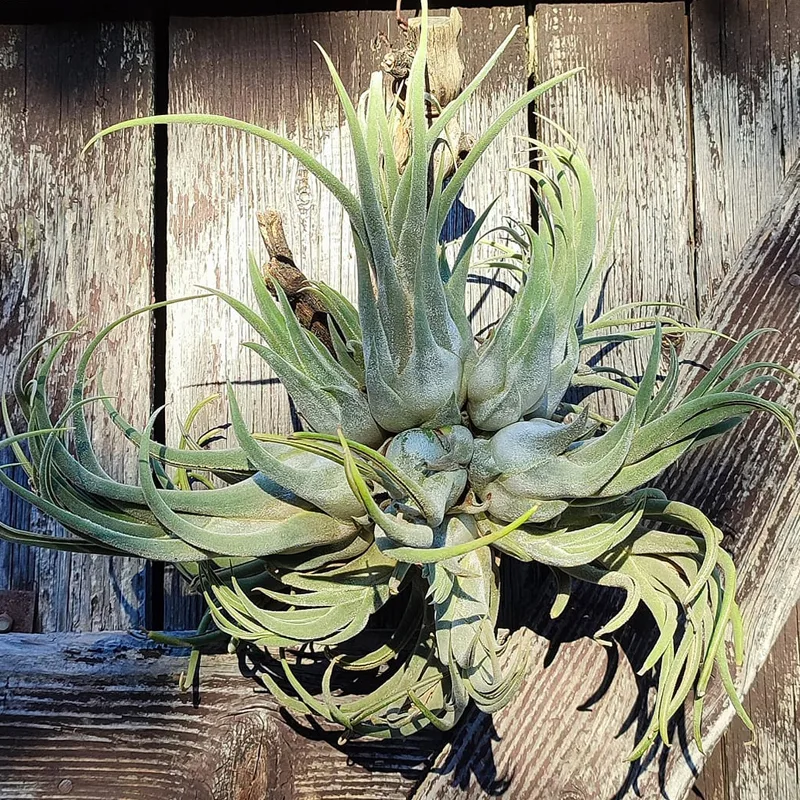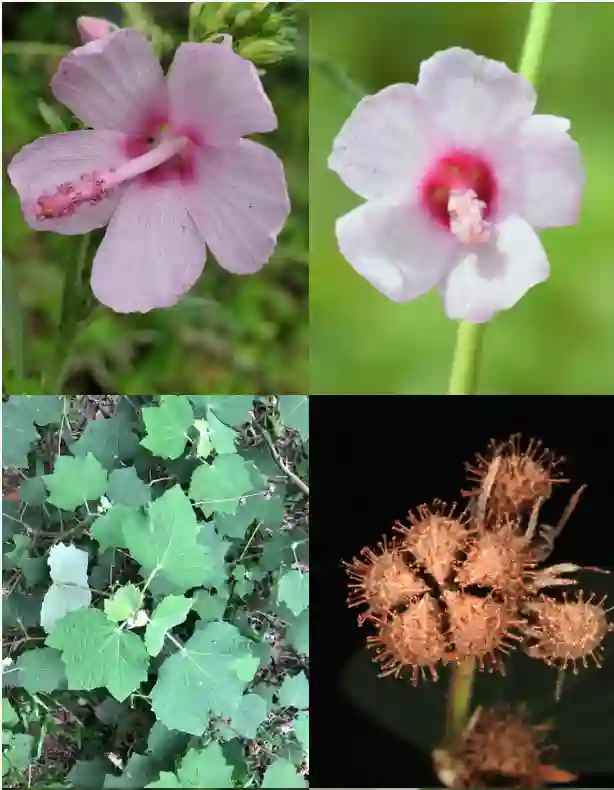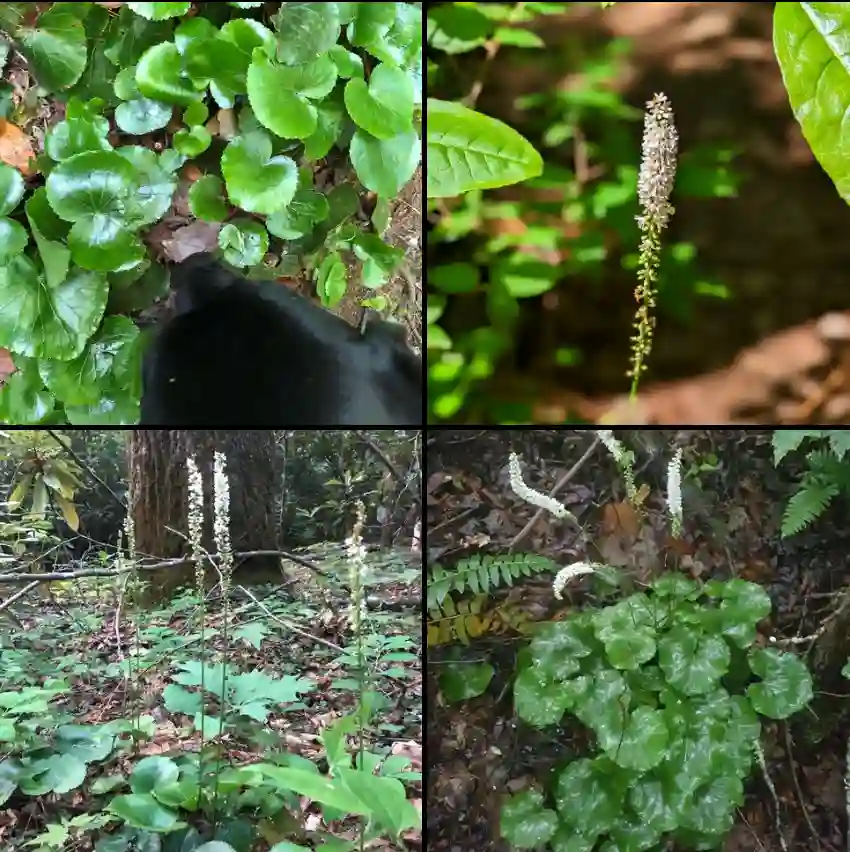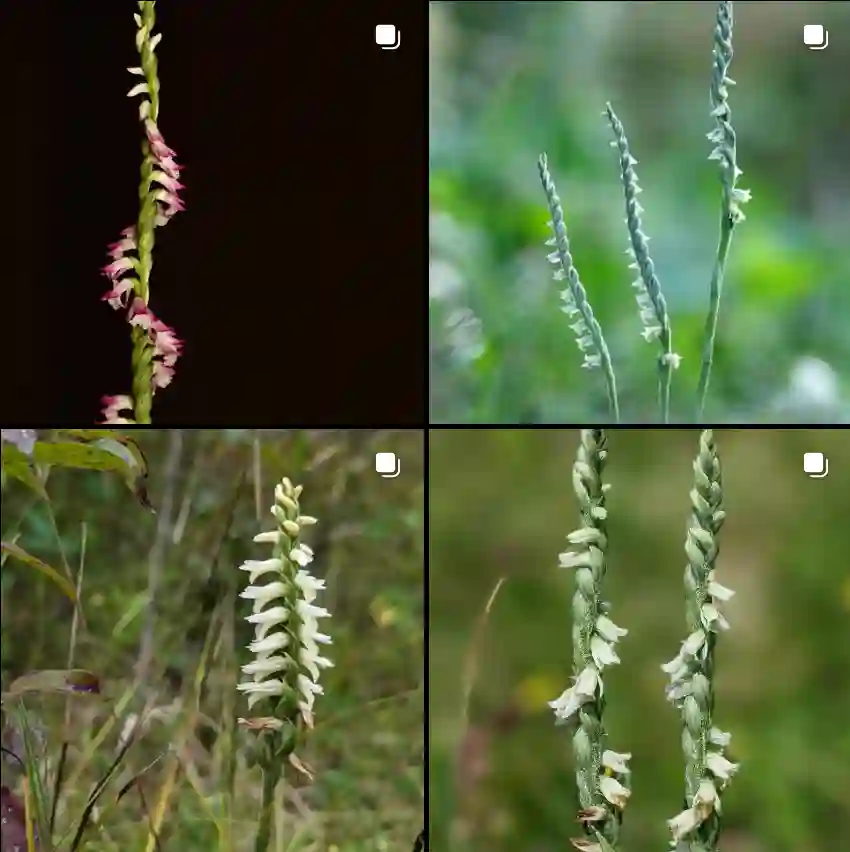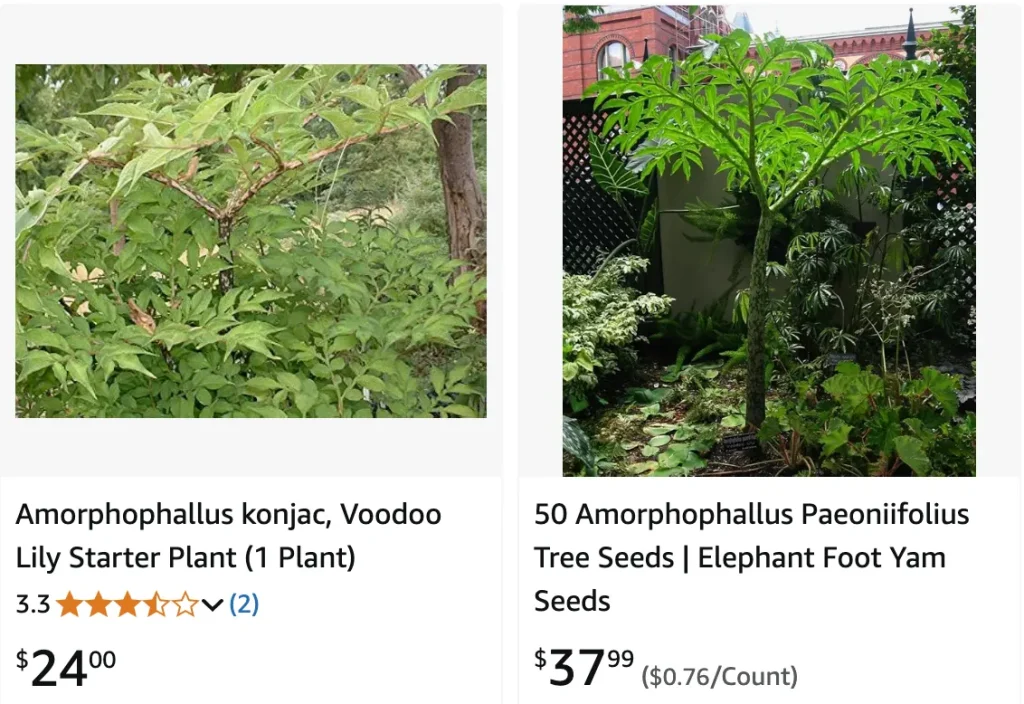
August 16 – Amorphophallus
"Amorphophallus, the titan arum, represents August 16."
Amorphophallus symbolizes uniqueness and transformation. You are bold and stand out in any crowd. Like this extraordinary plant, your impact is profound and memorable.
The Strange and Wonderful World of Amorphophallus
My name is Ferb Vu, and I’m fascinated by the plant genus Amorphophallus. The name might sound like something out of a Greek myth, and you wouldn’t be entirely wrong. It translates to “shapeless phallus,” a rather blunt description of the plant’s unique inflorescence. But there’s so much more to these plants than their unusual appearance. They’re a diverse group with a fascinating biology and a surprising number of uses.
A Diverse Genus
Amorphophallus belongs to the Araceae family, which also includes familiar plants like peace lilies and philodendrons. However, Amorphophallus stands out with its distinctive inflorescence consisting of a spadix (a fleshy spike bearing tiny flowers) and a spathe (a large, often colorful bract that encloses the spadix).
This genus boasts a remarkable diversity of over 200 species, ranging from the gigantic Amorphophallus titanum (titan arum) to the more modestly sized Amorphophallus konjac. They’re native to a wide range of habitats, from the tropical rainforests of Sumatra to the savannas of Africa.
Here are species that make up this genus:
- Amorphophallus aberrans Hett.
- Amorphophallus abyssinicus (A.Rich.) N.E.Br.
- Amorphophallus adamsensis Magtoto, Mones, Ballada, Austria, R.M.Dizon, Alangui, Regina
- Amorphophallus albispathus Hett.
- Amorphophallus albus P.Y.Liu & J.F.Chen
- Amorphophallus allenii A.Galloway, Malkm.-Huss., Prehsler & Claudel
- Amorphophallus amygdaloides Hett. & Sizemore
- Amorphophallus andranogidroensis Hett. & Mangelsdorff
- Amorphophallus angolensis (Welw. ex Schott) N.E.Br.
- Amorphophallus angulatus Hett. & A.Vogel
- Amorphophallus angustispathus Hett.
- Amorphophallus ankarana Hett., Ittenbach & Bogner
- Amorphophallus annulifer Hett.
- Amorphophallus antsingyensis Bogner, Hett. & Ittenbach
- Amorphophallus aphyllus (Hook.) Hutch.
- Amorphophallus arcuspadix A.Galloway, Ongsakul & Petra Schmidt
- Amorphophallus ardii Yuzammi & Hett.
- Amorphophallus asper (Engl.) Engl. & Gehrm.
- Amorphophallus asterostigmatus Bogner & Hett.
- Amorphophallus atrorubens Hett. & Sizemore
- Amorphophallus atroviridis Hett.
- Amorphophallus bangkokensis Gagnep.
- Amorphophallus barbatus A.Galloway & Ongsakul
- Amorphophallus barthlottii Ittenb. & Lobin
- Amorphophallus baumannii (Engl.) N.E.Br.
- Amorphophallus beccarii Engl.
- Amorphophallus bequaertii De Wild.
- Amorphophallus bognerianus Sivad. & Jaleel
- Amorphophallus bolikhamxayensis A.Galloway, Ongsakul & Petra Schmidt
- Amorphophallus bonaccordensis Sivad. & N.Mohanan
- Amorphophallus borneensis (Engl.) Engl. & Gehrm.
- Amorphophallus boyceanus Hett.
- Amorphophallus brachyphyllus Hett.
- Amorphophallus brevipetiolatus A.Galloway, Ongsakul & Petra Schmidt
- Amorphophallus brevispathus Gagnep.
- Amorphophallus bubenensis J.T.Yin & Hett.
- Amorphophallus bufo Ridl.
- Amorphophallus bulbifer (Schott) Blume Plant FAQs: Amorphophallus Bulbifer
- Amorphophallus calabaricus N.E.Br.
- Amorphophallus calcicola M.N.Tamayo, Magtoto & Sumalinog
- Amorphophallus canaliculatus Ittenb., Hett. & Lobin
- Amorphophallus candidissimus X.Gong & H.Li
- Amorphophallus carneus Ridl.
- Amorphophallus carnosus Engl.
- Amorphophallus caudatus R.Bustam., Mansibang, Hett. & M.N.Tamayo
- Amorphophallus chlorospathus Kurz ex Hook.f.
- Amorphophallus cicatricifer Hett.
- Amorphophallus cidarioides J.R.Callado, Medecilo & Hett.
- Amorphophallus cirrifer Stapf
- Amorphophallus claudelii A.Galloway & Ongsakul
- Amorphophallus coaetaneus S.Y.Liu & S.J.Wei
- Amorphophallus commutatus (Schott) Engl.
- Amorphophallus consimilis Blume
- Amorphophallus costatus Hett.
- Amorphophallus coudercii (Bogner) Bogner
- Amorphophallus crinitus A.Galloway, Luu, Malkm.-Huss., Prehsler & Claudel
- Amorphophallus crispifolius A.Galloway, Ongsakul & Petra Schmidt
- Amorphophallus croatii Hett. & A.Galloway
- Amorphophallus cruddasianus Prain
- Amorphophallus curvistylis Hett.
- Amorphophallus declinatus Hett.
- Amorphophallus decus-silvae Backer & Alderw.
- Amorphophallus discophorus Backer & Alderw.
- Amorphophallus dracontioides (Engl.) N.E.Br.
- Amorphophallus dumboi Eb.Fisch., B.Dumbo & L.Dumbo
- Amorphophallus dunnii Tutcher
- Amorphophallus dzui Hett.
- Amorphophallus eburneus Bogner
- Amorphophallus echinatus Bogner & Mayo
- Amorphophallus eichleri (Engl.) Hook.f.
- Amorphophallus elatus Hook.f.
- Amorphophallus elegans Ridl.
- Amorphophallus elliottii Hook.f.
- Amorphophallus erythrororrhachis Hett., Pronk & R.Kaufmann
- Amorphophallus excentricus Hett.
- Amorphophallus fallax (Serebryanyi) Hett. & Claudel
- Amorphophallus ferruginosus A.Galloway
- Amorphophallus flammeus Calaramo, Batuyong, Bulawin & Alejandro
- Amorphophallus flotoi (S.Y.Hu) Govaerts
- Amorphophallus fontarumii Bulawin, Medecilo & Alejandro
- Amorphophallus forbesii (Engl.) Engl. & Gehrm.
- Amorphophallus fornicatus Hett., J.R.Callado & Wistuba
- Amorphophallus fuscus Hett.
- Amorphophallus galbra F.M.Bailey
- Amorphophallus gallaensis (Engl.) N.E.Br.
- Amorphophallus gallowayi Hett.
- Amorphophallus gigas Teijsm. & Binn. Plant FAQs: Amorphophallus Gigas
- Amorphophallus glaucophyllus Hett. & Serebryanyi
- Amorphophallus gliruroides Engl.
- Amorphophallus glossophyllus Hett.
- Amorphophallus goetzei (Engl.) N.E.Br.
- Amorphophallus gomboczianus Pic.Serm.
- Amorphophallus gracilior Hutch.
- Amorphophallus gracilis Engl.
- Amorphophallus haematospadix Hook.f.
- Amorphophallus harmandii Engl. & Gehrm.
- Amorphophallus hayi Hett.
- Amorphophallus hemicryptus Hett. & J.F.Maxwell
- Amorphophallus henryi N.E.Br.
- Amorphophallus hewittii Alderw.
- Amorphophallus hildebrandtii (Engl.) Engl. & Gehrm.
- Amorphophallus hirsutus Teijsm. & Binn.
- Amorphophallus hirtus N.E.Br.
- Amorphophallus hohenackeri (Schott) Engl. & Gehrm.
- Amorphophallus hottae Bogner & Hett.
- Amorphophallus impressus Ittenb.
- Amorphophallus incurvatus Alderw.
- Amorphophallus infundibuliformis Hett., A.Dearden & A.Vogel
- Amorphophallus interruptus Engl. & Gehrm.
- Amorphophallus johnsonii N.E.Br.
- Amorphophallus josefbogneri Hett.
- Amorphophallus julaihii Ipor, Tawan & P.C.Boyce
- Amorphophallus juliae P.C.Boyce & Hett.
- Amorphophallus kachinensis Engl. & Gehrm.
- Amorphophallus khammouanensis A.Galloway
- Amorphophallus kienluongensis V.D.Nguyen, Luu & Hett.
- Amorphophallus kiusianus (Makino) Makino
- Amorphophallus konjac K.Koch Plant FAQs: Amorphophallus Konjac
- Amorphophallus konkanensis Hett., S.R.Yadav & K.S.Patil
- Amorphophallus koratensis Gagnep.
- Amorphophallus krausei Engl.
- Amorphophallus kuznetsovii (Serebryanyi) Hett. & Claudel
- Amorphophallus lacourii Linden & André
- Amorphophallus lambii Mayo & Widjaja
- Amorphophallus lanceolatus (Serebryanyi) Hett. & Claudel
- Amorphophallus lanuginosus Hett.
- Amorphophallus laoticus Hett.
- Amorphophallus lewallei Malaisse & Bamps
- Amorphophallus linearis Gagnep.
- Amorphophallus linguiformis Hett.
- Amorphophallus longicomus Hett. & Serebryanyi
- Amorphophallus longiconnectivus Bogner
- Amorphophallus longispathaceus Engl. & Gehrm.
- Amorphophallus longistylus Kurz ex Hook.f.
- Amorphophallus longituberosus (Engl.) Engl. & Gehrm.
- Amorphophallus lunatus Hett. & Sizemore
- Amorphophallus luzoniensis Merr.
- Amorphophallus lyratus (Roxb.) Kunth
- Amorphophallus macrophyllus (Gagnep. ex Serebryanyi) Hett. & Claudel
- Amorphophallus macrorhizus Craib
- Amorphophallus malkmus-husseinii A.Galloway, Prehsler & Claudel
- Amorphophallus mangelsdorffii Bogner
- Amorphophallus margaritifer (Roxb.) Kunth
- Amorphophallus margretae Ittenb.
- Amorphophallus maximus (Engl.) N.E.Br.
- Amorphophallus maxwellii Hett.
- Amorphophallus mayoi (Ittenb.) Eb.Fisch., B.Dumbo & L.Dumbo
- Amorphophallus mekongensis Engl. & Gehrm.
- Amorphophallus merrillii K.Krause
- Amorphophallus mildbraedii K.Krause
- Amorphophallus minimus R.Bustam., Claudel & M.N.Tamayo
- Amorphophallus minor Ridl.
- Amorphophallus mossambicensis (Schott ex Garcke) N.E.Br.
- Amorphophallus muelleri Blume
- Amorphophallus mullendersii Malaisse & Bamps
- Amorphophallus myosuroides Hett. & A.Galloway
- Amorphophallus mysorensis E.Barnes & C.E.C.Fisch.
- Amorphophallus napalensis (Wall.) Bogner & Mayo
- Amorphophallus napiger Gagnep.
- Amorphophallus natolii Hett., Wistuba, Amoroso, Medecilo & Claudel
- Amorphophallus niahensis P.C.Boyce & Hett.
- Amorphophallus nicolaii Hett.
- Amorphophallus nicolsonianus Sivadasan
- Amorphophallus obovoideus Alderw.
- Amorphophallus obscurus Hett. & Sizemore
- Amorphophallus ochroleucus Hett. & V.D.Nguyen
- Amorphophallus oncophyllus Prain ex Hook.f.
- Amorphophallus ongsakulii Hett. & A.Galloway
- Amorphophallus opalinus Serebryanyi & Hett.
- Amorphophallus operculatus Hett. & Sizemore
- Amorphophallus opertus Hett.
- Amorphophallus paeoniifolius (Dennst.) Nicolson
- Amorphophallus palawanensis Bogner & Hett.
- Amorphophallus paucisectus Alderw.
- Amorphophallus pendulus Bogner & Mayo
- Amorphophallus perakensis Engl.
- Amorphophallus perrieri Hett. & Wahlert
- Amorphophallus pilosus Hett.
- Amorphophallus plicatus Bok & H.J.Lam
- Amorphophallus polyanthus Hett. & Sizemore
- Amorphophallus prainii Hook.f.
- Amorphophallus preussii (Engl.) N.E.Br.
- Amorphophallus prolificus Hett. & A.Galloway
- Amorphophallus pulchellus Hett. & Schuit.
- Amorphophallus purpurascens Kurz ex Hook.f.
- Amorphophallus pusillus Hett. & Serebryanyi
- Amorphophallus putii Gagnep.
- Amorphophallus pygmaeus Hett.
- Amorphophallus ranchanensis Ipor, A.Simon & Meekiong
- Amorphophallus ravenii V.D.Nguyen & Hett.
- Amorphophallus rayongii Hett. & Medecilo
- Amorphophallus reflexus Hett. & A.Galloway
- Amorphophallus rhizomatosus Hett.
- Amorphophallus richardsiae Ittenb.
- Amorphophallus rostratus Hett.
- Amorphophallus rugosus Hett. & A.Lamb
- Amorphophallus sagittarius Steenis
- Amorphophallus sakonnakhonensis Chatan & Promprom
- Amorphophallus salmoneus Hett.
- Amorphophallus saraburensis Gagnep.
- Amorphophallus saururus Hett.
- Amorphophallus scaber Serebryanyi & Hett.
- Amorphophallus schmidtiae Hett. & A.Galloway
- Amorphophallus scutatus Hett. & T.C.Chapm.
- Amorphophallus serrulatus Hett. & A.Galloway
- Amorphophallus shyamsalilianus J.V.Gadpay., Somkuwar & A.A.Chaturv.
- Amorphophallus sinuatus Hett. & V.D.Nguyen
- Amorphophallus sizemoreae Hett.
- Amorphophallus smithsonianus Sivadasan
- Amorphophallus sparsiflorus Hook.f.
- Amorphophallus spectabilis (Miq.) Engl.
- Amorphophallus staudtii (Engl.) N.E.Br.
- Amorphophallus stuhlmannii (Engl.) Engl. & Gehrm.
- Amorphophallus subcymbiformis Alderw.
- Amorphophallus sumawongii (Bogner) Bogner & Mayo
- Amorphophallus suwidjianus Ipor, Tawan & Meekiong
- Amorphophallus sylvaticus (Roxb.) Kunth
- Amorphophallus symonianus Hett. & Sizemore
- Amorphophallus synandrifer Hett. & V.D.Nguyen
- Amorphophallus taurostigma Ittenb., Hett. & Bogner
- Amorphophallus tenuispadix Hett.
- Amorphophallus tenuistylis Hett.
- Amorphophallus terrestris Hett. & Claudel
- Amorphophallus teuszii (Engl.) Mottet
- Amorphophallus thaiensis (S.Y.Hu) Hett.
- Amorphophallus tinekeae Hett. & A.Vogel
- Amorphophallus titanum (Becc.) Becc. Plant FAQs: Amorphophallus Titanum
- Amorphophallus tonkinensis Engl. & Gehrm.
- Amorphophallus tuberculatus Hett. & V.D.Nguyen
- Amorphophallus umbrinus A.Galloway, Luu, Malkm.-Huss., Prehsler & Claudel
- Amorphophallus urceolatus Hett., A.Galloway & Medecilo
- Amorphophallus variabilis Blume
- Amorphophallus venustus Hett., A.Hay & Mood
- Amorphophallus verticillatus Hett.
- Amorphophallus villosus A.Galloway, Luu, Malkm.-Huss., Prehsler & Claudel
- Amorphophallus vogelianus Hett. & Billensteiner
- Amorphophallus wasa Naive, K.Z.Hein & Hett.
- Amorphophallus xiei H.Li & Z.L.Dao
- Amorphophallus yaoi A.Galloway, Hett. & Medecilo
- Amorphophallus yuloensis H.Li
- Amorphophallus yunnanensis Engl.
- Amorphophallus zenkeri (Engl.) N.E.Br.
A Curious Life Cycle
Amorphophallus species are geophytes, meaning they have an underground storage organ (a corm) that allows them to survive periods of dormancy. This is particularly important in their native habitats, where they may experience distinct wet and dry seasons.
The life cycle of an Amorphophallus plant is truly remarkable. It begins with the emergence of a single leaf, which can be enormous in some species. This leaf photosynthesizes and stores energy in the corm. After a period of growth, the leaf dies back, and the plant enters dormancy.
When conditions are favorable, the plant emerges from dormancy and produces its inflorescence. This is often the most dramatic stage of the plant’s life cycle, as the inflorescence can be quite large and striking. The spathe unfolds to reveal the spadix, which emits a powerful odor to attract pollinators such as carrion beetles and flies.
After pollination, the inflorescence withers, and the plant produces a cluster of berries. These berries contain seeds that can be dispersed by animals. The plant then enters another period of dormancy before the cycle begins anew.
More Than Just a Pretty (or Stinky) Face
While Amorphophallus plants are often admired for their unusual appearance, they also have a long history of use by humans. As mentioned earlier, some species have edible corms that are an important food source in certain parts of the world. The corms can be boiled, roasted, or ground into flour. They’re a good source of carbohydrates and are also low in fat.
In addition to their culinary uses, Amorphophallus plants have also been used for medicinal purposes. The corms of some species are believed to have anti-inflammatory and anti-cancer properties. They’ve also been used to treat a variety of ailments, including diarrhea, dysentery, and snakebites.
Conservation Concerns
Despite their adaptability, some Amorphophallus species are threatened by habitat loss and over-collection. Deforestation and agricultural expansion are destroying their natural habitats. In addition, some species are collected from the wild for the horticultural trade or for their edible corms.
Conservation efforts are underway to protect these fascinating plants. This includes habitat preservation, sustainable harvesting practices, and ex-situ conservation (growing plants in botanical gardens and other protected areas).
A Continuing Fascination
My interest in Amorphophallus continues to grow. I’m fascinated by their diversity, their unique biology, and their cultural significance. I believe that these plants have a lot to offer the world, both in terms of their beauty and their potential uses. I hope that through conservation efforts, we can ensure that future generations will be able to enjoy these strange and wonderful plants.
If i die, water my plants!
